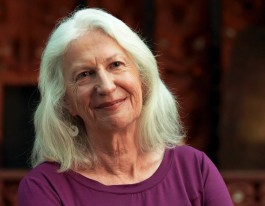|
|
 | Anne Salmond
Christchurch shootings : the doctrine of white superiority is alive and well in NZ | | | | In the wake of this terrible tragedy, let's be honest, for once. White supremacy is a part of us, a dark power in the land.
In
its soft version, it looks bland and reasonable. Eminent New Zealanders
assure their fellows that Māori were
“ lucky ” to be colonised by Europeans, that te
reo Māori is worthless, that tikanga Māori have nothing to teach us.
Others
simply assume that ancestral legacies from Europe are superior to
those from the Pacific — in the law, science, social and
cultural life.
In its hard version, it's violent and hateful,
spewing out curses, incarcerating young Māori in large numbers, denying
them a decent education, homes and jobs, telling them they have no
future, and are better off dead.
After Māori, the indigenous
people of these islands, this sense of white superiority spills out
over “ other ” groups — Pasifika,
Asian people, and now Muslims in Christchurch. Many of these people
have been sworn at, punched and jostled, treated as aliens who have no
place among us. Just talk with members of these groups, and they will
have traumatic experiences to share. Contempt breeds contempt, and
hatred can breed hatred. Sometimes they strike back, as you would
expect — although more often than not, at those close at
hand.
The doctrine of white superiority is based on arrogance,
and ignorance. Since other cultures, languages and religions are
worthless, there's no need to learn about them. The
“ others ” are dehumanised, making their misery
and suffering unreal. This helps to explain our tolerance for the
terrible statistics of youth suicide, incarceration, and family
violence in New Zealand.
Like the song of the Orcs, this kind of
hatred echoes in deep, hidden caverns in our society, menacing and
frightening. Every now and then it flashes out in actions that are
simply terrifying, like the shootings in Christchurch.
So let's
be clear about this. White supremacy is a black strand woven through
our history as a nation. It was deeply rooted in Europe, even before
arriving here in New Zealand.
Fortunately, though, it's not the
only legacy we have to draw on. From the outset, ideas of justice and
kindness, equality and mutual respect have provided a counterpoint to
greed and colonial ambition. Interwoven with notions of tika, and manaakitanga, this has led to moments that light up the dark.
When
James Cook's Endeavour arrived in New Zealand in 1769, almost 250 years
ago, there were shootings. The next day, Cook and an unnamed warrior
put down their weapons and exchanged a hongi on a sacred rock.
Four
years later, when a group of his men were sacrificed in Queen Charlotte
Sound, Cook commented of Māori : “ I have always found
them of a Brave, Noble, Open and benevolent disposition, devoid of
treachery, but they will never put up with an insult if they have an
opportunity to resent it. ”
He had come to admire Māori and understand something about mana, manaakitanga and tika, lessons that many New Zealanders have yet to learn.
In
1840 when Te Tiriti was signed at Waitangi, for instance, the text
describes an exchange of gifts between Queen Victoria and the
rangatira, a balance of powers between her agent, the governor
(kawanatanga), and the rangatira (tino rangatiratanga), and a promise
of equality between Māori and the Queen's people (nga tikanga rite
tahi).
This promise was utterly smashed by the incoming settler government, which proclaimed and practised white supremacy.
135
years later when the Waitangi Tribunal was set up, the New Zealand
government took a step away from this doctrine, although the promise of
equality has yet to be amply fulfilled.
In the present, let's
face it. Online, on talkback, in taxis and around dinner tables, the
doctrine of white superiority is still alive and well in New Zealand.
Sometimes it's loud and ugly, at other times simply taken for granted, and all the more insidious and dangerous.
It's absolutely right that our prime minister should take a stand for kindness and generosity, aroha and manaakitanga in the relations among different groups in our country.
Like many other Kiwis, I support and admire her for that.
But
let's not pretend that there's not a dark underbelly in New Zealand
society. It's real, and its twisted, and its been here forever. The
rest of us have to name it, challenge it when it comes to light, and
replace it with different, better ways of being Kiwi.
The Muslim
community has suffered a terrible, heart-breaking loss, and
it needs all our love and support. It is not the only group who
are targeted by white supremacists, however, and there are more ways of
killing and maiming people than with a gun.
Anne Salmond
| | The Dominion Post, 2019 |
|